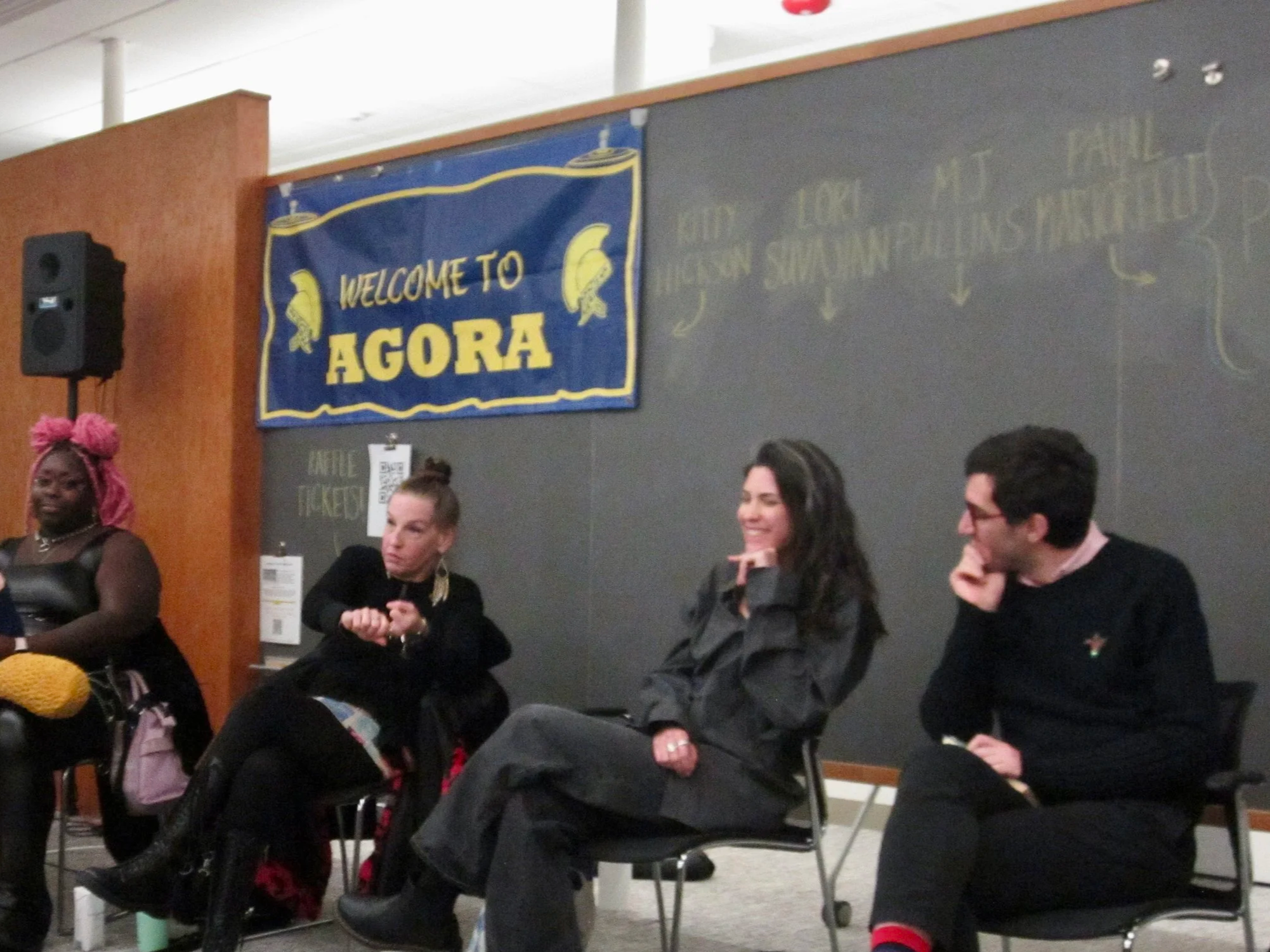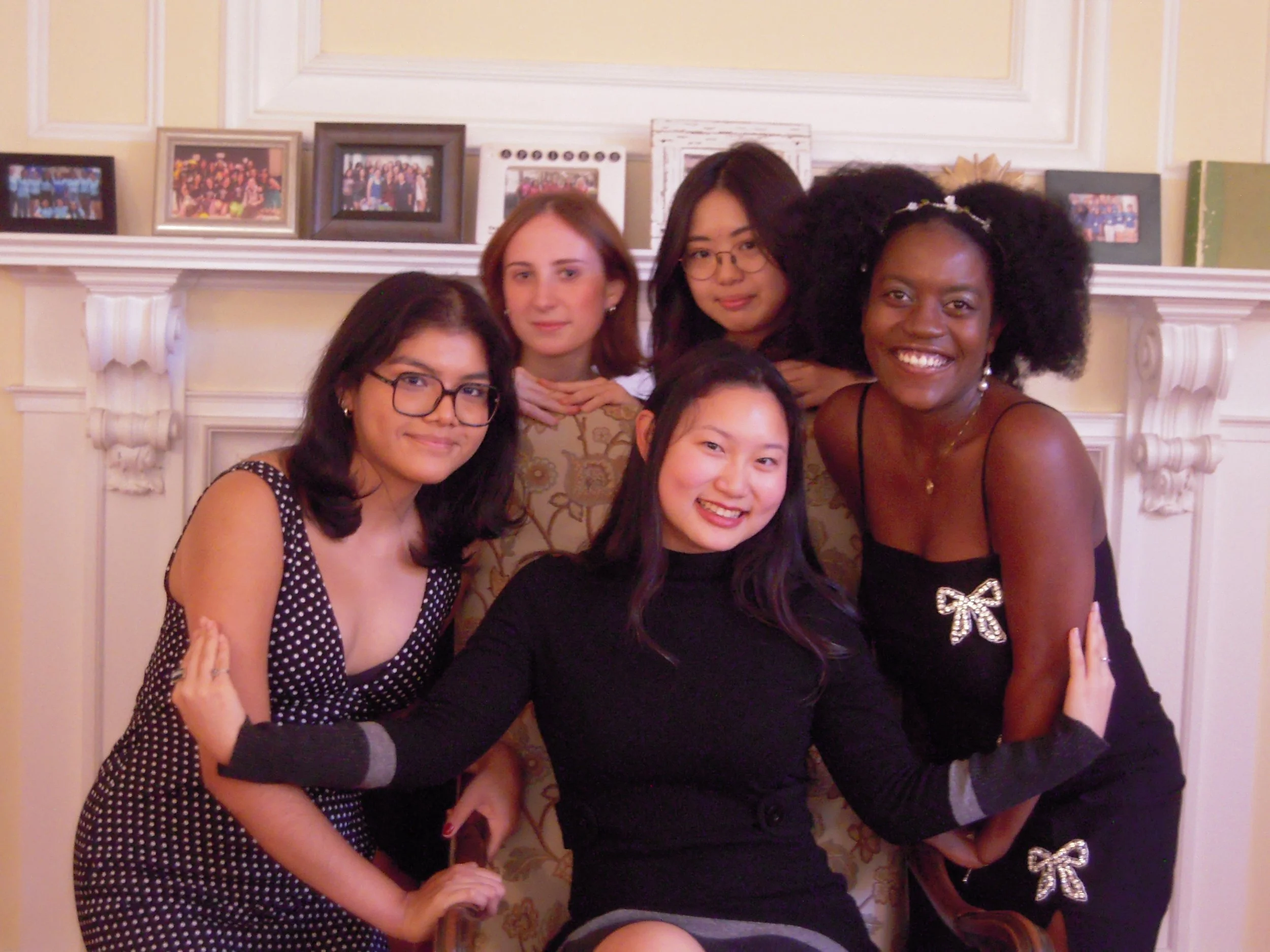About
The Agora Society Pillars
Family | Citizenship | Politics | Service
The society engages with the Wellesley community though Fireside Chats that serve as a platform for discussion surrounding on-campus politics, community lectures, voter registration drives, and volunteer tutoring provided by members to local students in the greater Wellesley community.
Agora has several families! When an initiate is accepted into Agora, they are also welcomed into a family to foster closer-knit community within the society. Families are named after notable political figures or themes: Cleo (pictured above), Ella Baker, Guerilla, Jemison, Hooks, Sotomayor, and Rogue. Families come together during weekly Agora meetings, in addition to family-specific events outside of the society meetings.
Agora strives to promote an intelligent interest in politics, all while upholding the society pillars. Each year, the society plans both social and political events in an effort to promote political engagement in the Wellesley Community and beyond. Political topics vary with the changing political climate, and are expressed through events planned by the society, and open to the Wellesley community.
History
Agora, Wellesley College’s Political Society, was founded in 1890 as a freshman club named “The Cottage Street Political.” In 1892 the founding members applied to the Academic Council and were granted recognition as a Wellesley College Society alongside the Shakespeare Society, Alpha Phi Sigma, Zeta Alpha, and Tau Zeta Epsilon.
First led by Abigail Laughlin ‘1894, who later led the first successful fight for women’s suffrage in California, the society focused solely on political issues of the time including a protective tariff, free trade, and women’s rights. The society discussed political issues of the day and, over time, developed an interest in social welfare. Thus in 1896, the society began addressing issues of social justice in addition to political affairs.
In 1898, Mr. Capen, father of Agorite Mary Capen ‘98, donated funds to build the Agora house. Later in 1918, General John J. Pershing, whose wife Frances Warren also an Agorite, was made a member of the society and sent his staff flag to Agora. Each academic year, Agora focused on a different political and/or social justice issue, including “Our Relations with England” (1898), “Labor Problems in the U.S.” (1924), “Facism in Germany & Italy” (1935) and recently, “The Consequences of Woke Capitalism”.
Agora House exterior. Property of the Wellesley College Archives.
Agora House interior. Property of the Wellesley College Archives.
Agora disbanded in 1971 due to both financial strains of maintaining the house and a changing political climate in which women were gaining and exercising more political rights. The members donated the Agora house and its contents to the college, and the building is now the Slater International Center, a vibrant component of the Wellesley College community. In 2011, Agora was revived by 7 sophomores concerned with the lack of non-partisan political discussions in combination with meaningful action and siblinghood at Wellesley.
Reviving its original mission, the society continues to promote intelligent interest in the political questions of the day by translating thought into meaningful action, and providing a platform for advocacy both on and off our campus.
A roster of The Agora from 1904. Property of the Wellesley College Archives.
A Wellesley dorm room from 1896. Spot the AGORA pillow! Property of the Wellesley College Archives.
Agora House postcard from 1912. Written on back: "The members of Agora devote themselves to study of social service and debating. They are very serious." Property of the Wellesley College Archives.







